Finding the right WMS for your business can make a dramatic impact on the way you run your company, achieve profitability, and improve efficiency.
Today we’re covering the best WMS software options for 2022 and beyond. We’ll be weighing their features, scalability, and ease of use to determine where your company should be looking in the future to continue growing and becoming a more established e-commerce company.
Key Characteristics of Great Warehouse Management Software (WMS)
A WMS is a simple organization device that can help you manage the flow of orders throughout your warehouse. But, every WMS is built differently. Some are simple and straightforward, while others are more unique in the ways that they function, and they cover a wide variety of tasks. Below are our takes on the key characteristics of great WMS systems.
Creating Purchase Orders
WMS software can generate purchase orders and send them to your suppliers. A crucial step that ensures you’re getting products ordered, receiving stock in time for needed fulfillment, and preventing overages or shortages of inventory.
Receiving and Storing Inventory
Your WMS should be able to help employees receive and store incoming inventory. This is particularly useful for companies that don’t have their own warehouse space, so they’ll need something like this to ensure the best flow of products into and out of the facility. Additionally, having a digital database of where items have been placed in a warehouse will help speed up the retrieval process when a new order is placed.
Your WMS can also help you track and place different groups of products and allow you to organize your warehouse in a way that optimizes flow.

Stock Level Control
A great WMS should be able to send updates and keep warehouse managers informed of important stock levels. Because you’ll be tracking levels with the help of your WMS, you can successfully predict the outflow of products along with sales trends year over year and month over month.
Receiving and Creating Sales Orders
The best WMS systems should help you receive incoming sales orders while also creating new purchase orders for your suppliers. This ensures that the right inventory gets sent out at the best time and minimizes any extra costs or fees associated with having outdated products in stock. It’s a delicate flow that can be well managed through good software and removes any human error from the equation.
Picking and Packing Items
Your WMS should also help employees and warehouse managers pick and pack items promptly. By knowing where items are located and the best order to retrieve items in, you’ll be able to get orders shipped out quickly and maximize your profit potential through minimized shipping costs.

Help with Shipping and Delivery
Warehouse managers can best manage outbound orders if their WMS system also helps them with the shipping and delivery process. This includes helping employees track packages, generate labels, calculate rates for different carriers, monitor important deadlines (like holidays), and more.
Scheduling Employees and Shifts
This is a crucial element that you’ll need to consider before choosing your WMS system. Having an automated way of scheduling employees and their shifts will make the best use of everyone’s time, reduce any potential issues or grievances with management, help companies stay compliant in different regions (like the EU where workers are entitled to certain breaks), all while helping to maximize revenue.
Safety Control and Performance Optimization
After Amazon reported more warehouse injuries than almost any other warehouse, astudy showed warehouse employees are more likely than those in other sectors to be injured on the job. That’s why it’s so important that your WMS system can also monitor and control safety conditions for workers and best track any performance or productivity-related metrics. All this combined will help warehouse managers keep everyone safe.
Best Features to Look for in Quality WMS
When you start shopping or as you’re looking through the multiple WMS platforms that we’re displaying below, be on the lookout for the features offered and how they might help you and your business. Price can play a big role in why you might choose a specific platform, but features should also play a role in it.
- Barcode and RFID scanners
- Providing real-time data updates and data streaming
- Inventory location recommendations
- Picking and packing help and flow
- Product tracking
- Warehouse layout planning
- Creating reports and market predictions
- Billing and invoicing
- Integration with ERP and other software options
- Customization opportunities
- Cloud-based vs. web-based
You might not need all of these features right now, but the best practice is to think about what you’ll need in the future or best-case scenarios and plan accordingly. Changing software systems down the road can be costly and time-consuming when it doesn’t need to be.
11 of the Best WMS Software Options
Here’s our pick for some of the best of the best WMS systems that you can choose from for your business.
NetSuite WMS
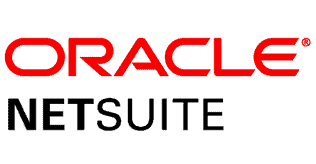
NetSuite is a great choice for manufacturing and warehousing. They provide customizable menus, best-in-class reporting, and dashboards for making quick decisions, and they offer a warehouse management system integration module to manage your warehouse and shipping tasks. They also provide tools for managing products, customers, sales orders, purchase orders, and more.
Cost: Contact for pricing.
Pros:
- Simple
- Offers third-party plugins
- Wireless warehousing
Cons:
- Does not offer good enterprise resource planning
Fishbowl Inventory

Fishbowl Inventory is software that will best help you with your inventory management. It offers tools for sales order processing, purchase orders, receiving, and shipping. It’s a great tool for any size business with the ability to scale up and down as needed.
Cost: Starting cost $4,595 billed annually.
Pros:
- Easy integrations
- A free trial is available
- Options for several plugins
- Good for multiple currencies
Cons:
- Only supports the English language
- Doesn’t support native shipping or e-commerce
- On-site installation is not offered
Extensiv Warehouse Manager from Scout
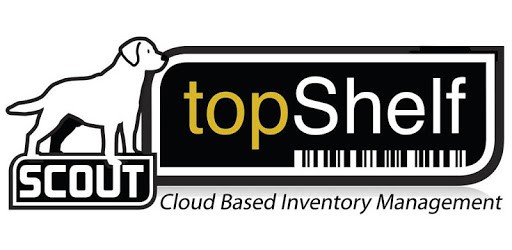
Extensiv Warehouse Manager is best for small businesses but still can help larger companies grow their warehouse management. This tool shines in its ability to help manage resources and the inventory side of the warehouse.
Cost: Available and customizable upon request.
Pros:
- Works with all camera-enabled smart devices
- Great barcode system
- Easy to scale over time
- Great for multi-site tracking and management
Cons:
- Not many features for employee management
- Doesn’t work well for enterprise-scale businesses
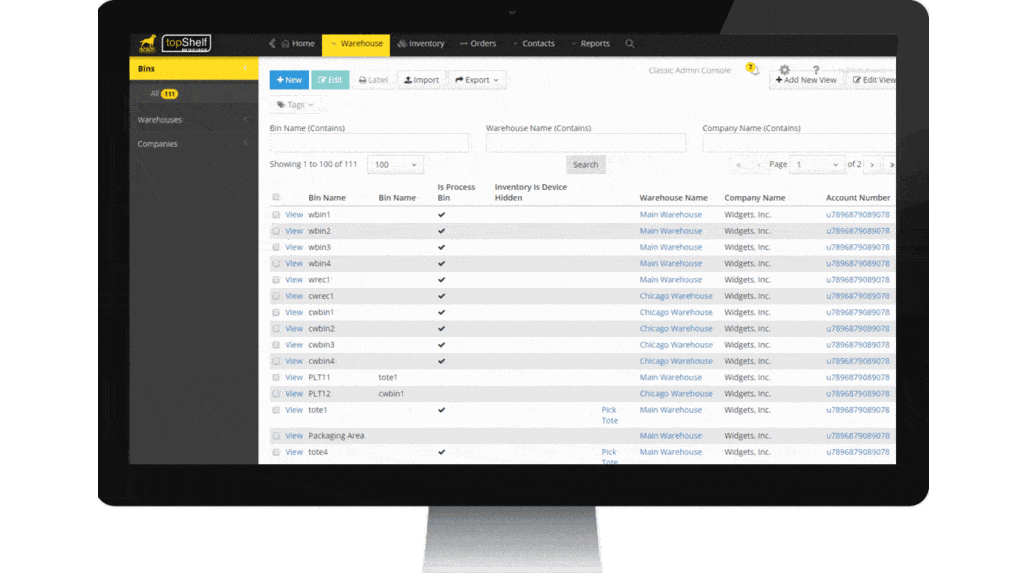
3PL Warehouse Manager

Designed and created by expert warehouse managers, 3PL has grown to be an extremely useful tool for this industry. It’s easy to expand and grow, offers all different types of integrations and plugins, and can help manage almost every process in a warehouse.
Cost: Available upon request.
Pros:
- Seamless expansion and integrations
- Centralized management system for multiple locations
- Accuracy that is second to no other system
Cons:
- Training is required to learn and understand the software
- Best for small-mid sized operations
Softeon

A simple and cloud-based solution that fits the needs of several different-sized warehouse companies. The software is web-native but does offer some offline functionality. Softeon is great for complex architecture and inventory management functions.
Cost: Available upon request.
Pros:
- Great customer support
- Can process high volumes of inventory
- Great for productivity and task management
Cons:
- Doesn’t offer billing management functions
- Not compatible with Mac OS or Linux OS.
Infor SCM

Launched in 2002, this software solution sought to fix as many industry problems as possible and has quickly grown to accomplish some of those. This product is specific to warehouse management and helps solve many labor planning, space utilization, traffic flow, and order flow problems. It’s complex, but with a little work, it’s a great tool to have.
Cost: Available upon request.
Pros:
- Provides support for industry-specific functions
- Offers solutions to almost all warehouse management needs
Cons:
- No exporting or graphic reports are available
- Doesn’t have a facility or document management tool
- The inventory management features aren’t a strong suit
HighJump
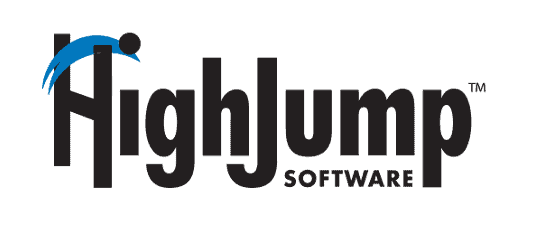
Highjump offers warehouse management tools that hold their own against the competition. It’s easy to implement, use and scale up as needed and has lots of great features. Some features include being cloud-based, multi-client operations, labor management, and ERP integrations.
Cost: Available upon request.
Pros:
- Robust and multifunction system
- Regular updates help to ensure that the product is enhanced based on customer feedback
Cons:
- Reporting functionality isn’t available
- No card processing is available
Manhattan Associates

This software has won several awards and offers a WMS that covers everything you’d want. Dock door management, quality audits, appointment scheduling, mobile and handheld device support, integrations, labor management, and more make this a good deal to consider.
Cost: Exact price options available upon request
Pros:
- Can capture information automatically
- Support provided for handheld devices and material handling equipment
- Provides lots of security options
Cons:
- Customizations make this tool expensive

TECSYS WMS
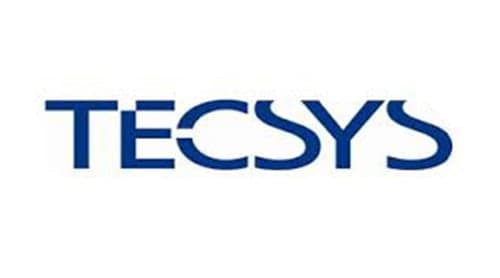
Launched in Montreal, Canada, this cloud-based system has amassed many great features and benefits that help customers find the perfect solutions to their business needs. Features include dock and cross-dock management, multiple pick methods, and advanced picking, packing, and shipping functionality.
Cost: Starts from $50,000 as a one-time license fee.
Pros:
- Robust and scalable system
- Customizable workflow
- Easy to integrate with various other services
Cons:
- Payment processing and billing isn’t currently available
- No features for monitoring supply-chain or analytics
- No support for multiple locations
Bright Warehouse

This cloud-based system uses SaaS (software as a service) to offer you a great WMS. It’s a cost-effective solution for managing all warehouse functions Deposco provides Bright Warehouse for companies of any size.
Cost: Pricing starts from $5,000/month.
Pros:
- No hardware or software installation needed
- Easily scalable
Cons:
- No payment processing functions
- No reporting functions
Astro WMS

A warehouse solution that works great for any size operation, this tool supports several ERP systems, integrations, plugins, custom functions, and other common and tech-focused advantages.
Cost: Available upon request.
Pros:
- A flexible tool with tons of options
- Scalable and accurate for businesses that are growing rapidly
Cons:
- Can be expensive
At https://www.extensiv.com/extensiv-warehouse-managerExtensiv, we believe you should only have the best in both customer care and warehouse management/inventory management solutions. If you’re looking for a hard-working and quality team that’s ready to help you get the product you deserve, reach out to us today! We’ll help guide you through the process and refer you to a better solution if we’re not a good fit.
-
You’ll read about:
Be the first to know
Subscribe to our newsletter





